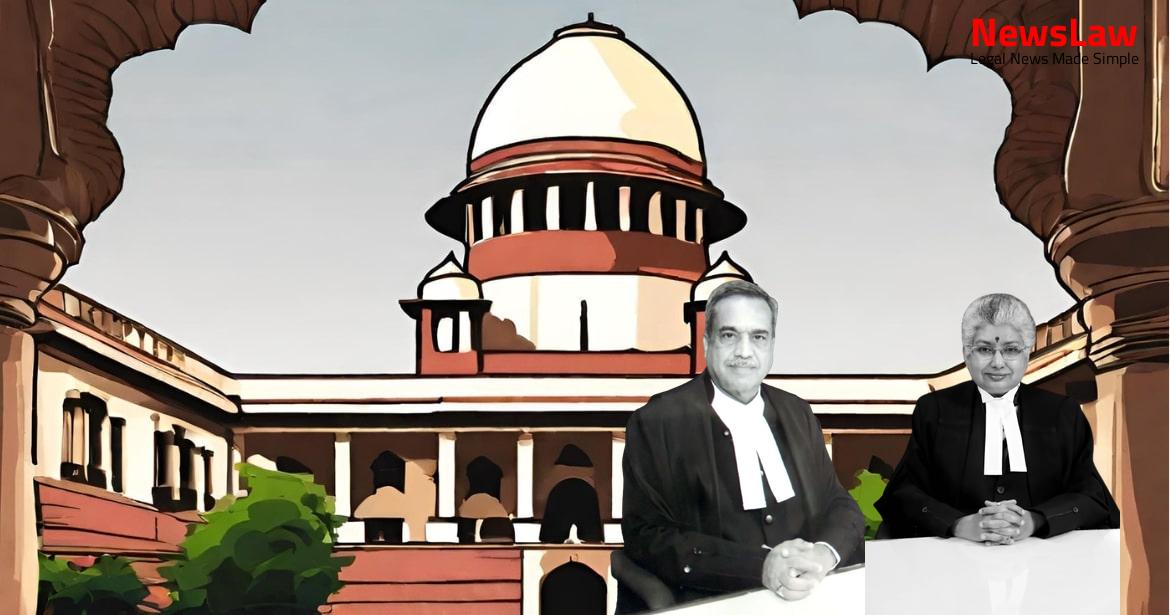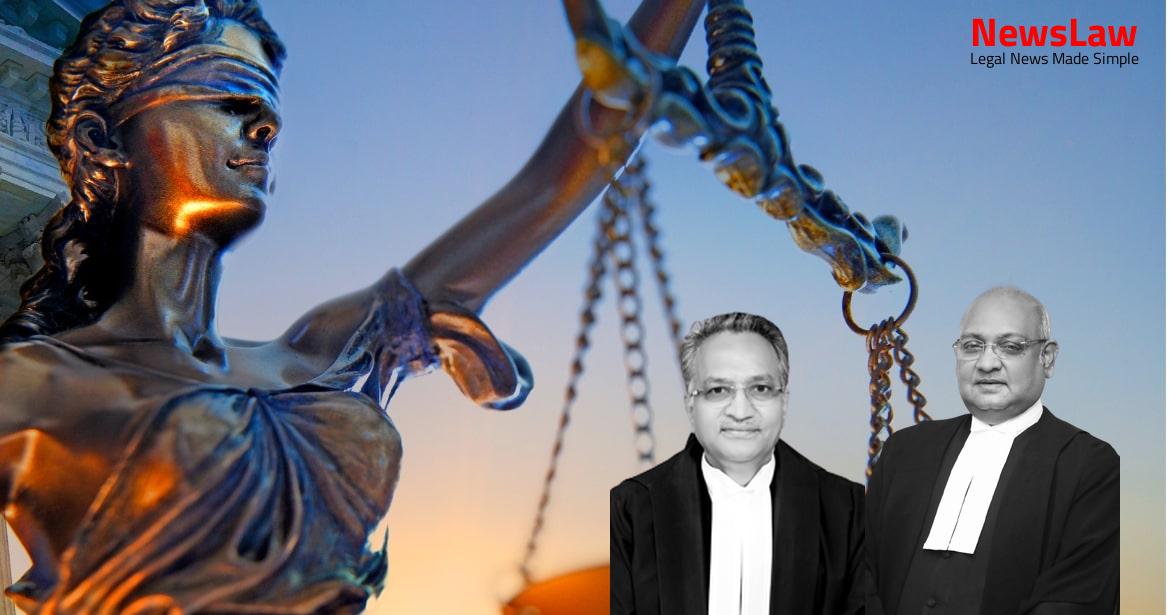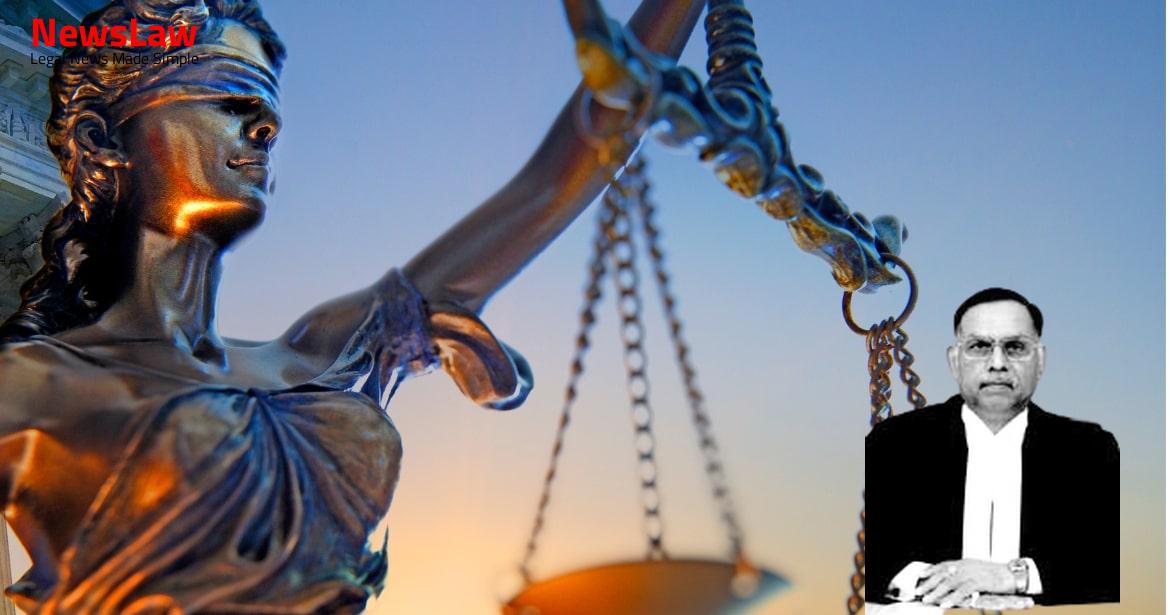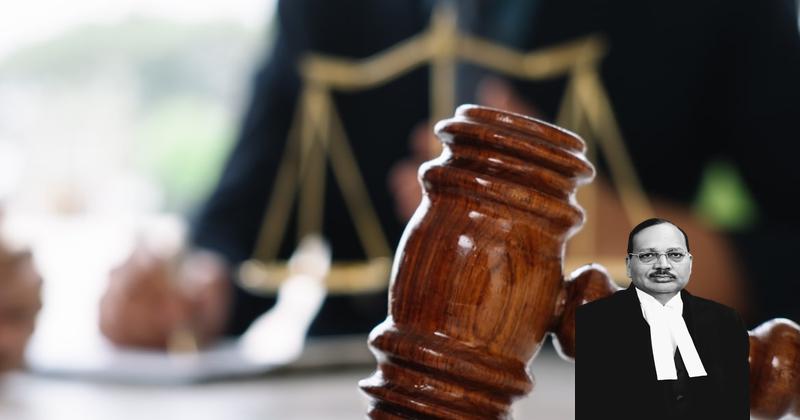In a recent legal case, the court meticulously analyzed the suspicious circumstances surrounding the execution of a disputed will. The need to prove the validity and authenticity of the will, especially in the presence of questionable conditions, was a focal point of the court’s judgment. Let’s explore the intricate legal analysis conducted by the court in evaluating the probate case.
Facts
- Dispute over the will and testament of E. Srinivasa Pillai.
- S. Damodaran, the son of E. Srinivasa Pillai, died intestate, leaving behind his wife and two daughters.
- The bequest in the will favored S. Damodaran over the daughters, Savitri Ammal and Padmavathi.
- The property in question was situated at Premises No.10, Azeez Nagar II Street, Kodambakkam, Madras-24.
- The defendants sought dismissal of the petition seeking Letters of Administration.
- They claimed their father, mother, and brother had all passed away.
- The defendants alleged the first plaintiff neglected their brother.
- Legal notice for partition was issued and a suit filed by the defendants.
- They argued the will was forged and deprived them of their rightful inheritance.
- The petition was converted into a Testamentary Original Suit due to objections.
- The first plaintiff’s actions regarding marriage and divorce were highlighted.
- Allegations of the will being fabricated and signatures being forged were made.
- Daughters of the testator filed a suit for partition of the property.
- Necessity of seeking Letters of Administration was emphasized.
- The condition of the testator at the time of the alleged will was described.
Also Read: Court’s Legal Analysis on Specific Performance in Tribal Land Transfer Case
Issue
- 1.0
Also Read: Clarification on Reservation for Scheduled Tribes in Union Territory
Arguments
- The appellants argued that the will was fabricated and forged by the respondent to exclude them from their rights to the house property.
- There was an inordinate delay in initiating proceedings for probate of the will, which raises suspicions about its authenticity.
- The appellants contended that the testator was not in a sound state of mind to execute the will due to being bedridden and having sustained a paralytic stroke.
- The signatures on the contentious document were found not to be that of the testator, further casting doubt on the validity of the will.
- The appellants criticized the Division Bench of the High Court for reversing the Trial Judge’s judgment without providing reasons for the decision.
- The respondents-plaintiffs argued that the execution of the will had been proven as per Section 68 of the Indian Evidence Act, 1872 and Section 63 of the Indian Succession Act, 1925.
- The Appellate Court was satisfied with the proof of the will’s execution by the testator E. Srinivasa Pillai without any suspicious circumstances.
- The Appellate Court correctly overturned the Trial Court’s judgment and decree based on this evidence.
Also Read: Analysis of Tax Exemption for Enemy Properties
Analysis
- The evidence presented by PW1 and PW2 creates a discrepancy regarding the condition of the testator, with PW2 stating that the testator was unwell and bedridden while PW1’s testimony lacks clarity.
- The unregistered will, Ex-P1, bequeaths specific property to the testator’s son without conditions, but the circumstances around the will’s execution raise doubts.
- The proximity of the date of the will’s execution to the testator’s death, 15 days later, calls into question the testator’s soundness of mind.
- A will may seem unnatural or have certain unusual features that warrant scrutiny.
- The court needs to be satisfied that the will was duly executed by the testator and this requires cogent and convincing explanations for any suspicious circumstances.
- Deprivation of a natural heir’s due share is a factor considered by courts before granting probate.
- The proof of a will is essential to provide reasonable assurance of its authenticity.
- Existence of suspicious circumstances alone may not be enough to challenge a will.
- The party propounding a will must prove its validity, especially in the presence of suspicious circumstances.
- The court must consider statutory provisions governing the proof of documents like Sections 67 and 68 of the Evidence Act.
- The court must weigh the findings of fact based on conflicting evidence from the Trial Court when considering an appeal.
- A resolute and impenetrable incredulity is not required from the Judge even in cases of grave suspicion.
- Suspicious circumstances surrounding a will can include shaky or doubtful signatures, unnatural dispositions, and a propounder playing a significant role in execution.
- The propounder must remove all suspicious circumstances regarding the execution of the will.
- The Appellate Court can interfere with the findings of the Trial Court if there is material irregularity or reliance on inadmissible evidence, but must provide cogent reasons for doing so.
- Section 67 of the Indian Evidence Act requires that the signature of a person alleged to have signed a document must be proved to be in his handwriting.
- To prove handwriting under Sections 45 and 47 of the Act, the opinions of experts and persons familiar with the handwriting of the concerned person are necessary.
- Sections 59 and 63 of the Indian Succession Act are also relevant in terms of the requirements for disposing of property by will.
- Section 59 allows every person of sound mind, not being a minor, to dispose of his property by will, with specific illustrations provided for clarity.
- Section 63 specifies the requirements for signing the will, either by the testator or by another person in his presence and by his direction, to give effect to the writing as a will.
- Rule 31 mandates that the appellate court’s judgment should include points for determination, decision, reasons for the decision, and relief granted if the decree is reversed or varied.
- The appellate court has the authority to reverse or affirm the findings of the trial court, with Section 68 specifying the proof required for documents that need attestation.
Case Title: MURTHY Vs. C.SARADAMBAL (2021 INSC 862)
Case Number: C.A. No.-004270-004270 / 2010



